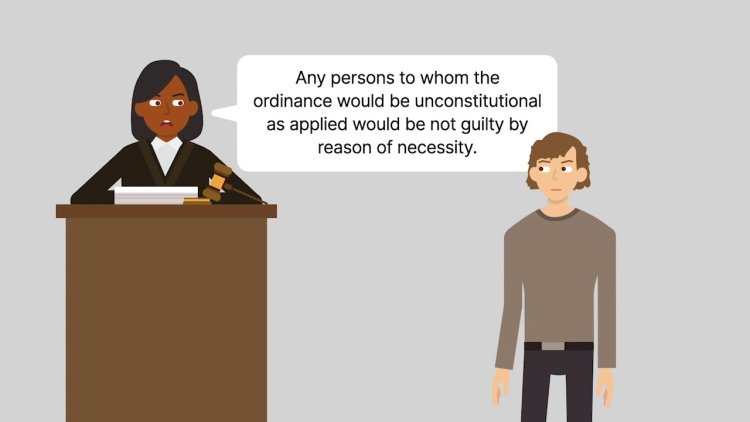In re Eichorn
California Court of Appeal
81 Cal. Rptr. 2d 535 (1998)
- Written by Craig Conway, LLM
Facts
James Eichorn (defendant), a homeless resident of Santa Ana, California, was cited by a police officer for violating a city ordinance that prohibited sleeping in designated public areas. At the time of his citation, Eichorn was in a sleeping bag outside a building in the civic center. When the police officer asked Eichorn why he did not go to the National Guard Armory (the armory), which was used as a homeless shelter, Eichorn stated that he had tried to do so once, but it was consistently full. Prior to trial, Eichorn requested funds to hire an expert to testify about the harmful effects of sleep loss. Additionally, Eichorn asked to present a defense of necessity. The trial court denied both of Eichorn’s requests. At a bench trial, Eichorn presented several expert witnesses who testified about a significantly rising homelessness rate, a lack of available beds for homeless individuals at shelters, and the fact that the armory was over capacity on the night Eichorn was cited. One expert witness testified that most homeless individuals were in their situations involuntarily because they could not obtain consistent employment, and that these individuals slept outside because they had no other alternative. The trial court concluded that Eichorn’s proof was inadequate to support a necessity defense. Eichorn was convicted, and he appealed. The appellate department affirmed the conviction and denied Eichorn’s request to transfer the cause. Eichorn petitioned for a writ of habeas corpus in the California Court of Appeal.
Rule of Law
Issue
Holding and Reasoning (Crosby, J.)
What to do next…
Here's why 907,000 law students have relied on our case briefs:
- Written by law professors and practitioners, not other law students. 47,100 briefs, keyed to 996 casebooks. Top-notch customer support.
- The right amount of information, includes the facts, issues, rule of law, holding and reasoning, and any concurrences and dissents.
- Access in your classes, works on your mobile and tablet. Massive library of related video lessons and high quality multiple-choice questions.
- Easy to use, uniform format for every case brief. Written in plain English, not in legalese. Our briefs summarize and simplify; they don’t just repeat the court’s language.





